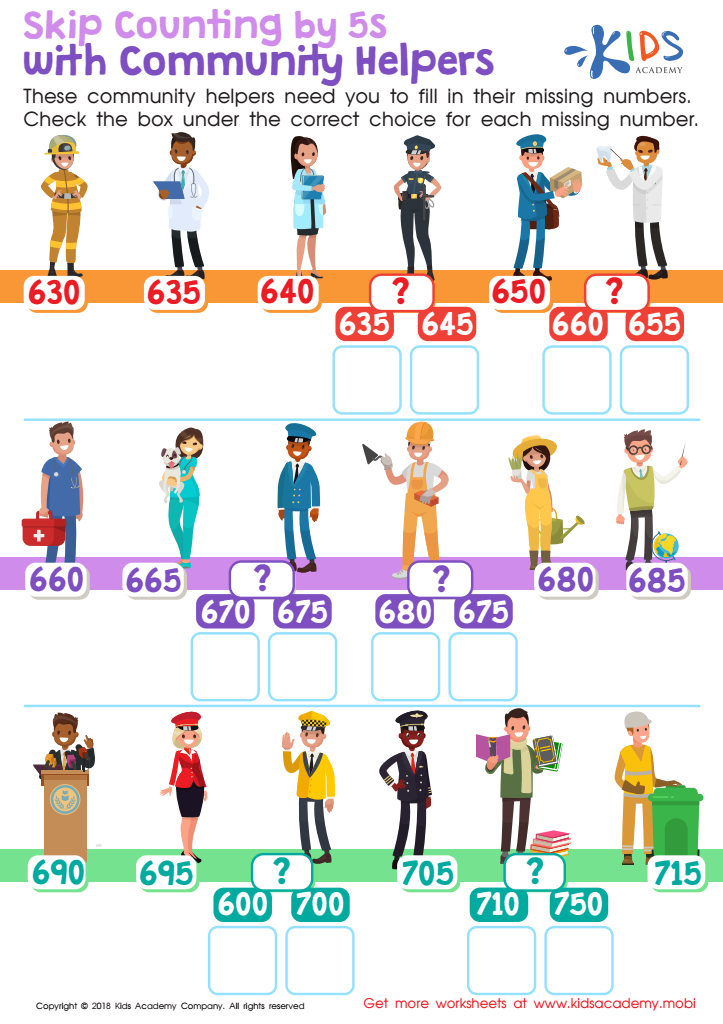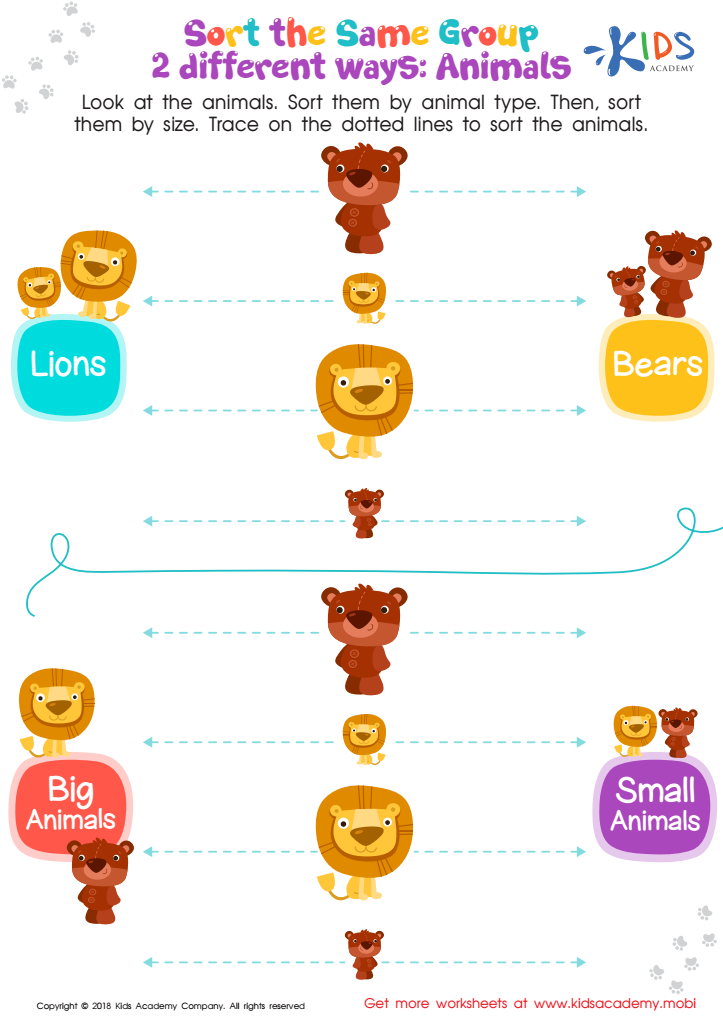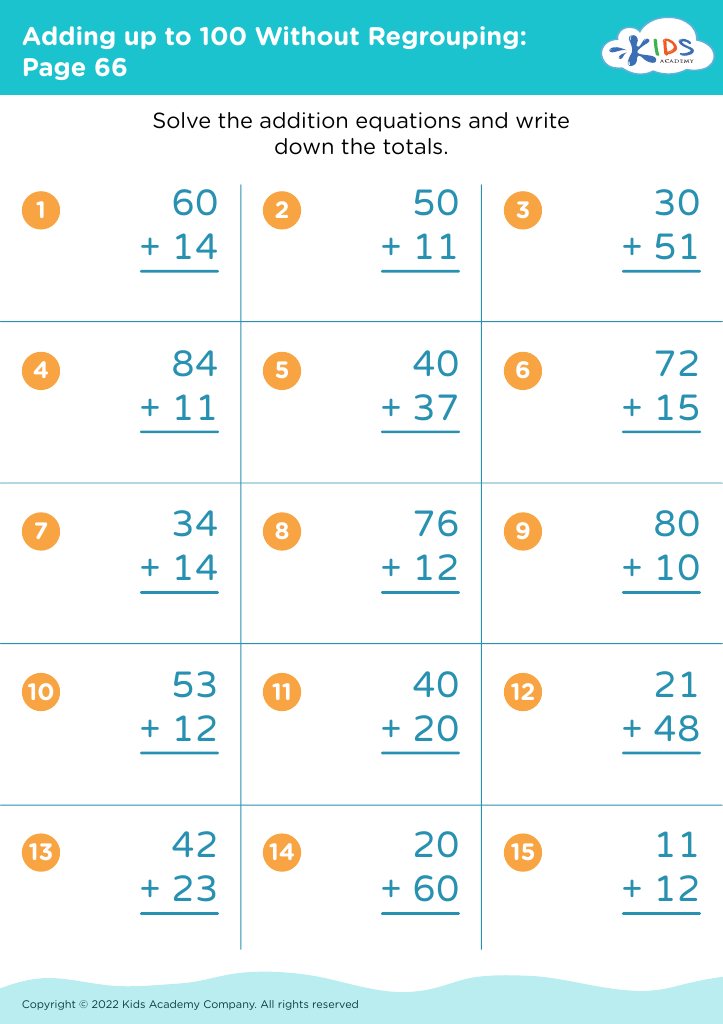Recognition skills Math Worksheets for Ages 3-7
3 filtered results
-
From - To
Discover our engaging "Recognition Skills Math Worksheets" crafted for children ages 3-7. These printable resources provide a fun and educational approach, enhancing your child's ability to recognize numbers, shapes, patterns, and more. Designed by experts, each worksheet aims to boost early learning skills in an enjoyable, approachable way. Perfect for preschool and early elementary students, our worksheets help lay a strong math foundation through interactive activities that stimulate curiosity and foster a love for learning. Visit us at Kids Academy to ignite your child's interest in math and enable their academic growth today!


Skip Counting by 5s With Community Helpers Worksheet


Sort the Same Group 2 Different Ways: Animals Worksheet
Recognition skills in math are fundamental for children ages 3-7, forming the bedrock of their future academic success and day-to-day problem-solving abilities. At this early stage, young learners are highly receptive and their cognitive abilities are rapidly developing. Recognizing numbers, patterns, shapes, and basic math concepts is crucial for several reasons.
First, recognition skills in math promote cognitive development. As children identify and differentiate numbers, shapes, and patterns, they enhance their memory, attention, and processing skills. This sharpens their overall brain function and prepares them for more complex thinking tasks.
Second, strong recognition skills build a solid foundation for advanced mathematical learning. Much like learning to read, early familiarity with the basics of math sets children up for success in mastering arithmetic, algebra, and geometry in later years. When children recognize numbers and understand their relationships, they can more easily learn to count, add, subtract, and perform other operations.
Third, these skills are practically significant in daily life. From recognizing the number of toys they have, understanding days of the week, or identifying shapes in their environment, math recognition helps children navigate the world around them confidently.
Parents and teachers, therefore, play a pivotal role in nurturing these skills. By engaging children in fun, interactive, and educational activities focused on math recognition, they can foster a love for learning and set the child on a path toward long-term academic and personal success.


 Assign to My Students
Assign to My Students



















